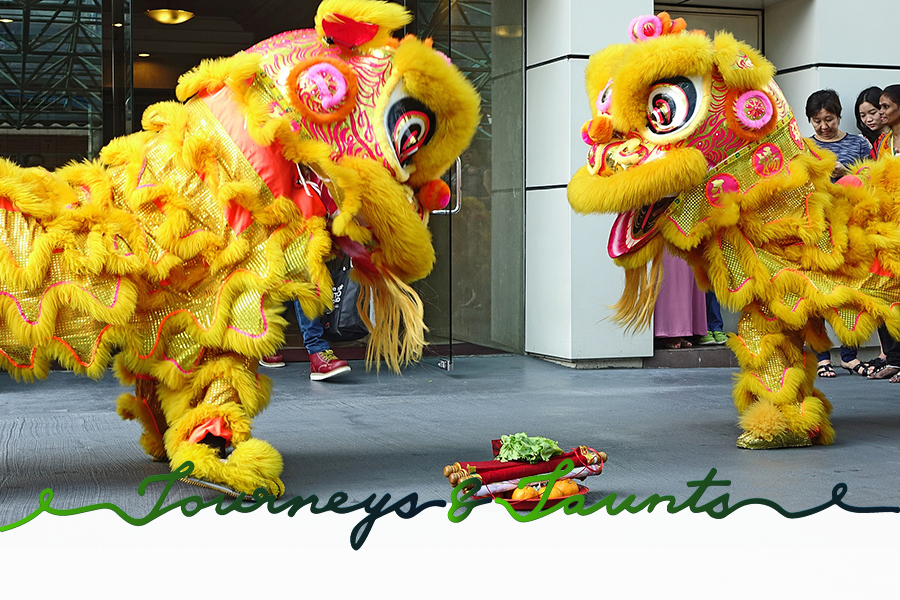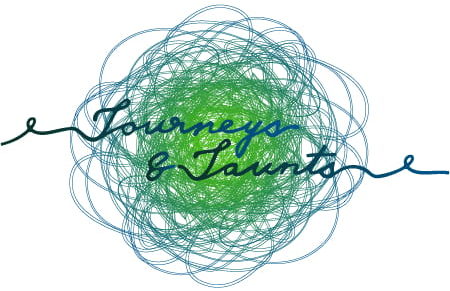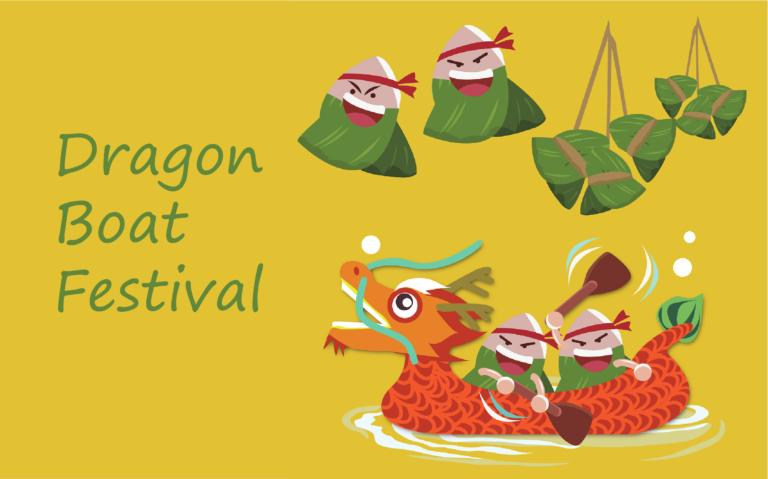Finally, the Lunar New Year is here! And at midnight on February 1st, we all enter the Chinese New Year – the Year of the Water Tiger. We have been waiting for this for a while now, learning many interesting Chinese customs and traditions along the way (like in the overview post, some information about the preparations, also called Little New Year, Pork Stewing Day, Shopping Day, Couplets Day and New Year’s Eve). Now it is time to talk about the first day of the year – what the Chinese people do – and about the Chinese zodiac calendar in general.
Spectacular shows at temple fairs usually begin on the first day in different cities. Because of the ongoing pandemic situation, no one really knows how many events will be held and under what conditions, though. If you are lucky to be in a location where temple fairs are happening, you will get a chance to see traditional performances such as dragon dances, lion dances or imperial performances like an emperor’s wedding there. In the North of China, many places play homage to tradition with a dance performance by a group of colorfully-dressed men and women called the Rice Sprout Song.

Traditionally, on this day, young family members are visiting their elders. Families spend time together, go to the temple fairs, set off firecrackers and fireworks (unless there is a ban in place) and exchange gifts or “lucky money” in red envelopes.
Please note that all banks or government offices will be closed, only big shopping malls (and not all of them) are open. Public transport is working, but you won’t see a lot of buses and taxis like on other days. Also, NO traffic on roads – a true rarity in China.

As it is the first day of the Lunar year, there are some taboos, which you have to avoid:
- Do not eat porridge in the morning because it brings poverty.
- Also, some people do not eat meat in the morning to respect Buddhist traditions (which condemn killing animals for any reason).
- Avoid taking medicines because it brings illness.
- No washing of hair or clothing – you will wash the good luck away.
- And, of course, no sweeping – it is believed that you will sweep your wealth away. But since you have cleaned your apartment already in accordance to tradition, this should not be a problem, right?
- Needle work is also a bad idea, as is using knives or scissors. The knives and scissors will cut your wealth.
- A married woman is not allowed to visit her relatives on this day as it will bring bad luck to her parents and economic problems to the whole family (she has a special day for visiting her family, which is one day later).
As I have mentioned numerous times, Chinese people have their own calendar, which is actually a very complicated 60-year cycled system, or 干支, gānzhǐ in Pinyin (so, it repeats every 60 years, not 100 like in a Western century). Yes, it is 60 years in one cycle and not 12 (as you might deduce from the fact that there are 12 zodiac animals). This 60-year cycle is a combination of 10 Celestial or Heavenly Stems (天干, or in pinyin: tiāngān) and 12 Earthly Branches (地支, or in pinyin: dìzhī).
The ten Celestial or Heavenly Stems first appeared during the Shang Dynasty (1250 BCE) as a Chinese system of ordinals, and are actually still used like this to this day (for contracts, plays or other enumerations). The Shang people believed that there were 10 suns that appeared in order in a 10-day cycle. After the collapse of the Shang Dynasty, people started associating the Heavenly Stems with the principle of Yin and Yang and the Five Elements.
The principle of Yin and Yang is one of the main ancient Chinese philosophies, based on opposite or contrary forces. It literally translates to “dark and light”, where yīn 阴 is the “shady side” and yáng 阳 is the “sunny side”. The interaction and struggle of these two principles generated Five Elements, from which the whole material world sprung. The Five Elements (or Five Phases, Agents, Movements, Processes, etc), or Wǔ Xíng (五行) is a fivefold conceptual scheme which the Chinese use for describing interactions and relationships between phenomena. They are Wood (木 mù), Fire (火huǒ), Earth (土 tǔ), Metal (金 jīn), and Water (水 shuǐ). These Five Elements are moving and harmonious – water generates wood, wood – fire, fire – earth, earth – metal and metal – water; or mutually overcoming – water extinguishes fire, fire melts metal, metal destroys trees, trees turn into earth and earth is swamped by water. The interaction between Yin and Yang and the Five Elements gives us the ten Celestial, or Heavenly Stems.

The 12 Earthly Branches are built according to the observation of Jupiter’s orbit. Chinese astronomers divided the circle into 12 sections to follow the orbit of Jupiter (歲星, or Suìxīng in Pinyin), and gave an “animal” name to each section. The number “twelve” appeared, because Jupiter makes a full way around the Sun for 12 years. And, of course, after this the Chinese zodiac appeared. The Western zodiac is also divided into 12 sections, but each section is one month long, not one year.
You should also know that the Chinese zodiac is a very complicated system, as it has not only years but also seasons, days and even hours! Having an exact meaning in each section, Chinese astrologists can make a full characteristic of a person (for example) if they know all information of date and hours of birth.
The Chinese zodiac system is a big branch of Chinese science, so it is not possible to describe it all here. If you are interested in it – you will find plenty of information on the Internet or find many books in shops.
As I struggle even with the Western concept of astrology, I personally don’t put much store in the Chinese zodiac system, either. But it is definitely interesting to learn more about these beliefs. After all: no knowledge is ever wasted, is it?




